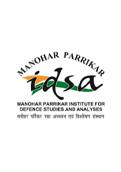Africa’s Quest for Modernity: Lessons from Japan and China
The volume under review draws from noted scholar Ali Mazrui’s definition of modernisation, which integrates epistemic advancements with capability-based arguments. It looks to East and Southeast Asia as models for Africa’s development. As he states in his introduction, Africa ‘has to be able to conscript both China and Japan’ in service of its developmental goals (p. 5). He argues that ‘Africa can partner with China and learn from Japan’ while being cognisant of the diversity of developmental paths in East and Southeast Asia.- Arnab Dasgupta |
- January-June 2025 |
- Africa Trends






